
National Election 2015
In the lead up to the 2015 polls, women expressed a fear of violence as a deterrent to their participation as voters, election administrators and observers.
In addition, activity by Boko Harama terrorist group based in northeast Nigeria has increasingly taken on a gendered dimension, contributing to an insecure environment for women that may not be be conducive to political participation. The Transition Monitoring Group (TMG), which monitored the 2015 Nigerian elections, for example, had difficulty recruiting women monitors due to their fear of violence in certain regions, particularly the north.
To improve understanding of VAW-E in Nigeria, NDI and the International Federation of Women Lawyers (FIDA) organized a multi-pronged approach in the run-up to the Nigerian state elections in the autumn of 2015. Under the “Stop Violence Against Women in Elections” (Stop-VAWIE) campaign, FIDA and NDI designed an information-gathering effort that drew on focus group discussions and a citizen hotline, in addition to election observation data. The campaign informed policy recommendations and a report issued to legislators, civil society activists and other stakeholders that contributed solutions to mitigate and stop VAW-E.
Drawing from the experiences of other groups, TMG’s leadership adopted an expanded focus on VAW-E as they designed their methodology for state elections, which included collecting more detailed, gender-disaggregated data on a wider spectrum of incidents. They accomplished this by implementing changes in the forms observers used so they could collect more specific data on critical incidents. For the national election, the forms asked for data on the type of incident, while the forms developed for the state-level elections also included a clear way for observers to indicate the gender of both victims and perpetrators. This resulted in TMG having more detailed data and a way to measure violence or intimidation of candidates because of their gender, vandalism or destruction of properties belonging to candidates or their supporters, and the use of derogatory language aimed at women candidates, in addition to hate speech.
In Nigeria’s 2015 elections, the Transition Monitoring Group (TMG) observed two separate electoral processes. The first was national elections in the spring, followed by state elections later in the year. During this observation, TMG gathered information about the presence of gender-based hate speech, including capturing data that allowed it to present regional differences in the presence of this form of hate speech. TMG also engaged in ongoing discussions about the issue with other organizations, and continued to build knowledge in preparation for the second, state-level elections. This sustained engagement, which deepened TMG’s understanding of VAW-E, also sparked new and expanded ideas for incorporating VAW-E into its monitoring efforts for the local elections, despite the challenges of having its observers, even for the state elections, spread over a large area.
BEFORE THE ELECTION
In the state-level pre-election observation in Kogi and Bayelsa states, observers reported on events that they witnessed directly, as well as events that were reported to them by credible third parties.
Unlike TMG’s election day observation, observers were not distributed via sample-based methodology, and therefore the reported data is not statistically representative. However, it does provide a detailed look into the general trends and environment of the pre-election period.
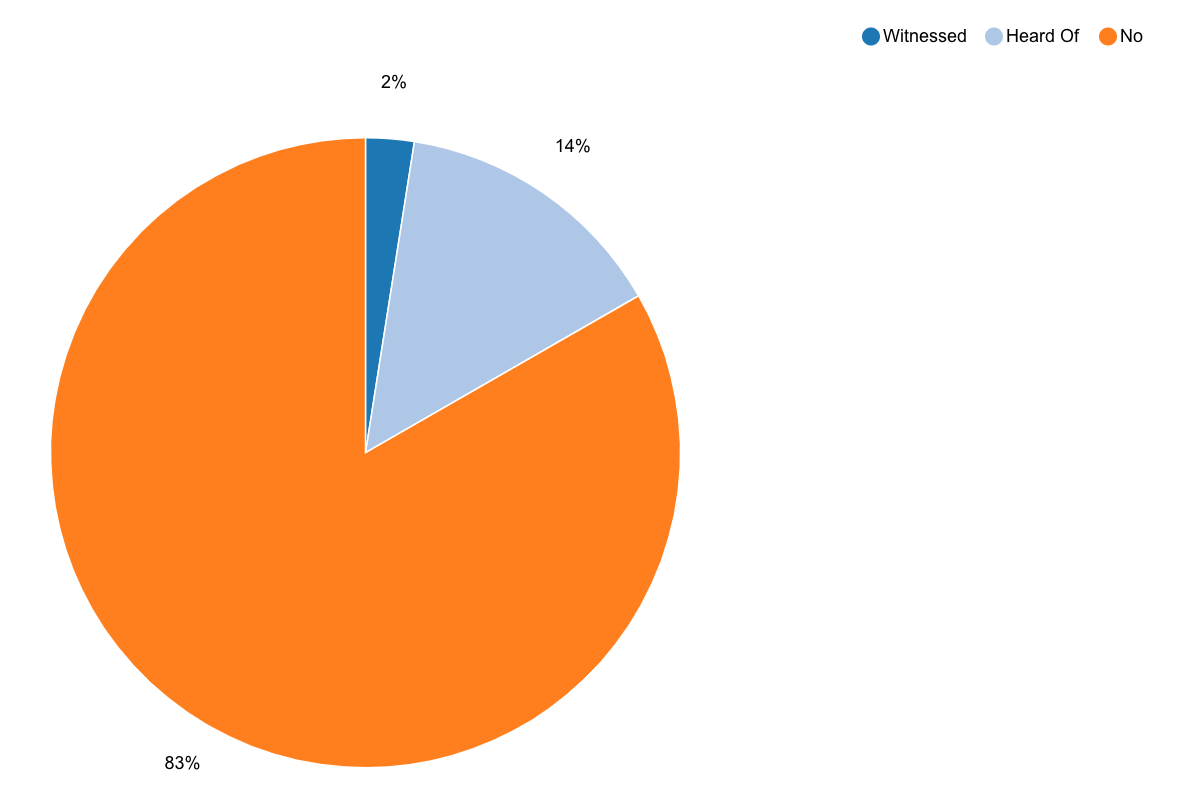
Nigeria Pre-Election Violence Against Women
On its pre-election observation forms during the national election, TMG required its observers to indicate whether they had witnessed or heard of hate speech, violence or intimidation against candidates or their supporters because of their gender. 83% of observers did not witness or hear of any gender-based violence, but a small percentage did hear reports of acts of violence through credible sources and a few directly witnessed incidents of violence occurring.
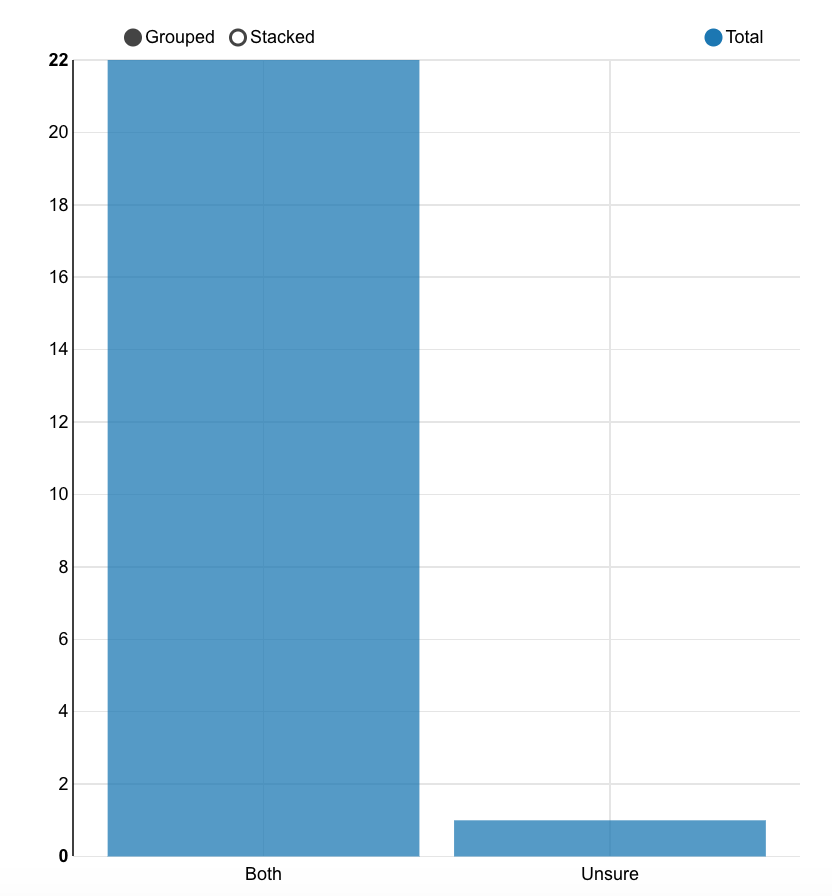
Nigeria Bayelsa Pre-Election Hate Speech Victims
Likewise, in the pre-election phase in Bayelsa, observers reported that victims of hate speech were both men and women, motivated by their gender, origin,age, religion or physical disabilities.
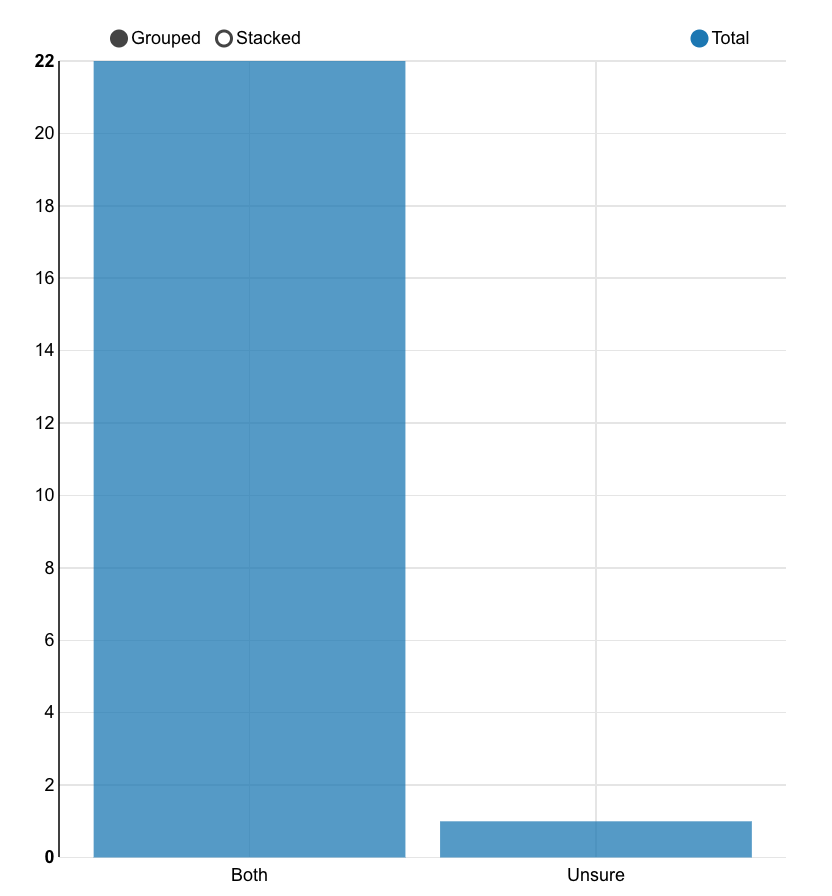
Nigeria Pre-Election Bayelsa Hate Speech Perpetrators
Hate speech was an important form of violence that TMG monitored throughout each election. In the case of Bayelsa during the pre-election period, observers reported incidents of both men and women engaging in hate speech.
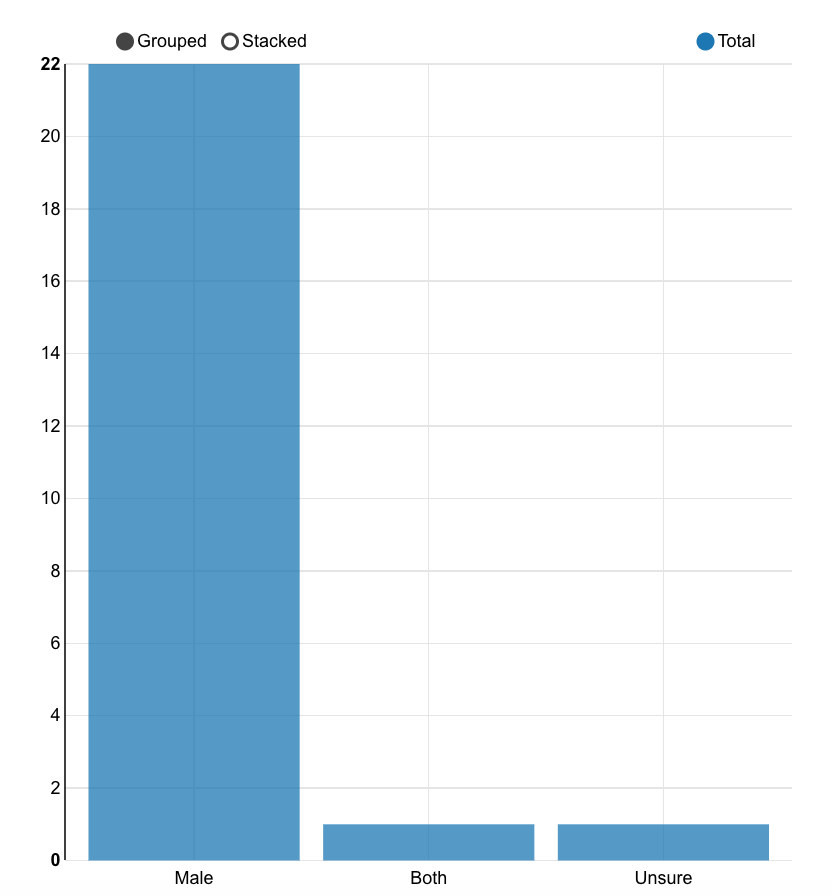
Nigeria Kogi Pre-Election Hate Speech Victims
Overall levels of reported hate speech were small, but during the pre-election observation in Kogi, observers reported that victims of hate speech motivated by their gender, origin, age, religion or physical disabilities were primarily men, with few exceptions.
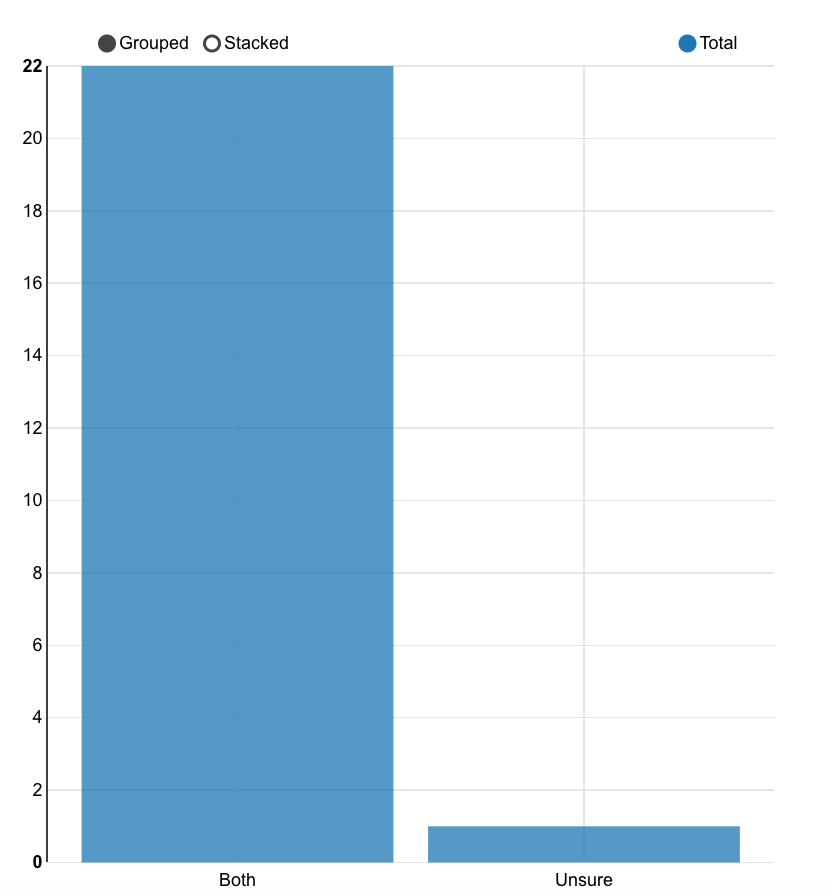
Nigeria Kogi Pre-Election Hate Speech Perpetrators
Hate speech was an important form of violence that TMG monitored throughout each election. As in Bayelsa, observers stationed in Kogi during the pre-election period reported incidents of both men and women engaging in hate speech.
ELECTION DAY
For the national elections, TMG drew upon the reports of approximately 4,000 observers, who were deployed systematically throughout Nigeria.
In the state elections of Kogi and Bayelsa, TMG again deployed observers systematically throughout each state. In each observation, TMG employed a quick count methodology to monitor election day processes and record any incidents related to election procedures or violence.
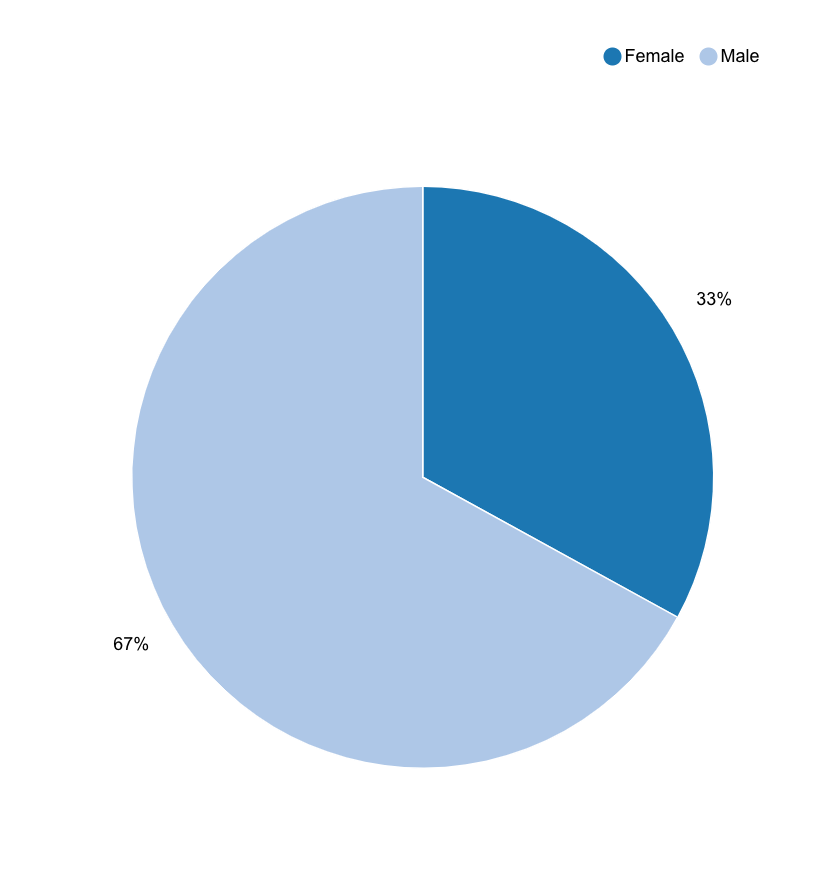
Nigeria National Election Day Victims of Violence during Voting
During the national elections, observers deployed by TMG used a critical incident form to provide gender disaggregated data on the incidents of violence they observed. From this data reported, women were 33% of the total victims of reported incidents of election day violence.
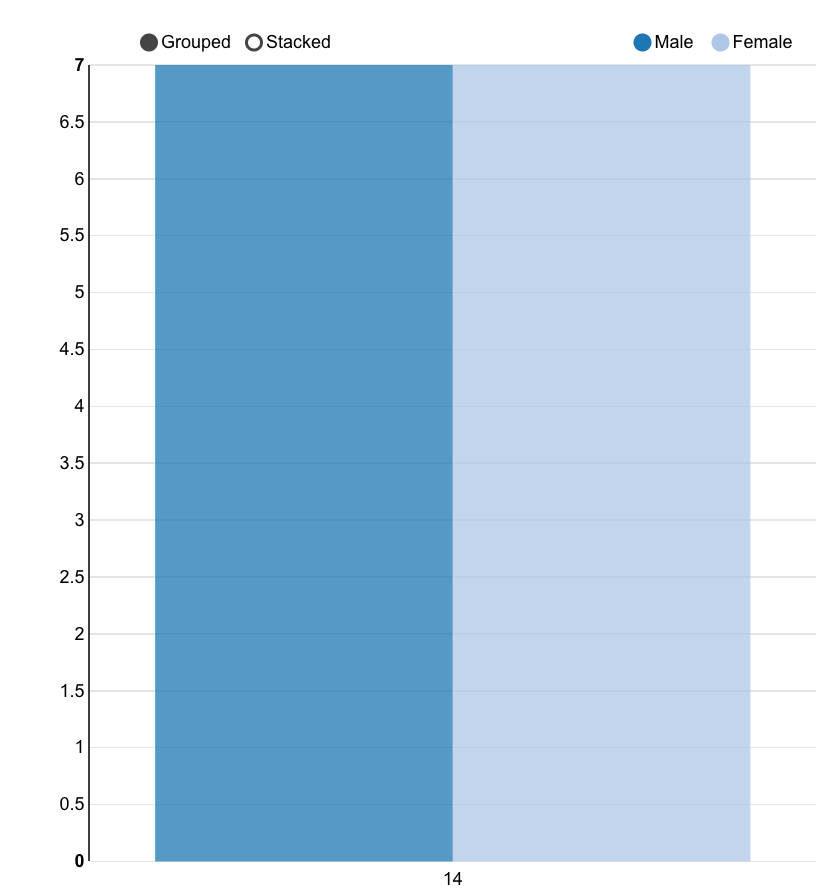
Nigeria Bayelsa Election Day Victims of Violence during Voting
The forms used by election observers in the Bayelsa state elections included questions for observers about incidents of intimidation, harassment or violence against women. Of the incidents of violence reported by observers, an equal number targeted men and women.
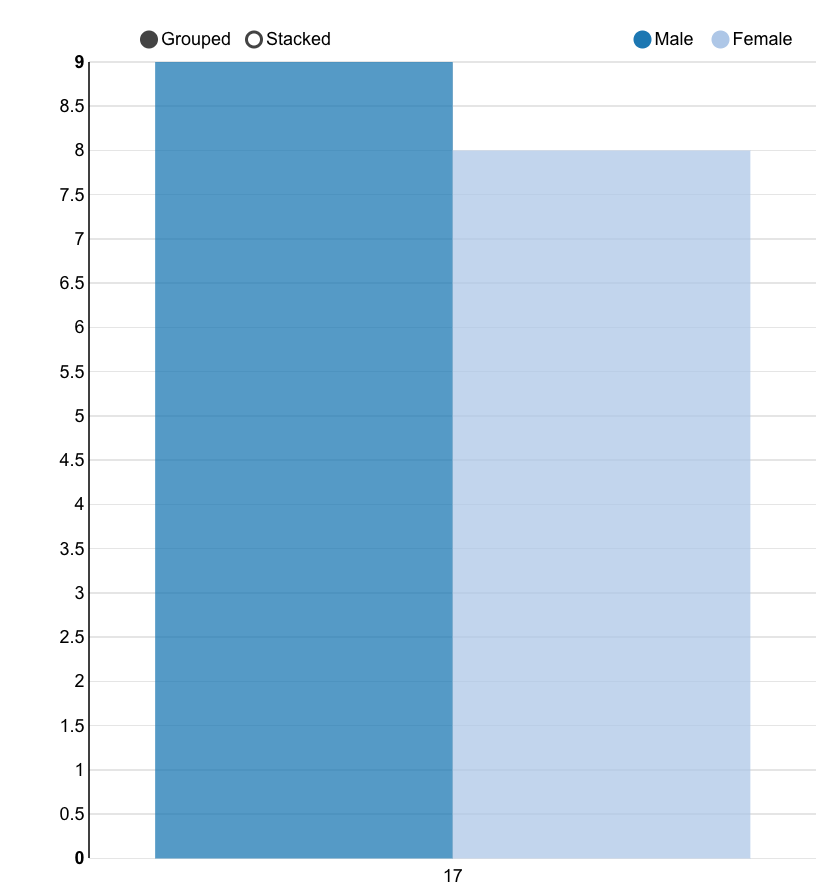
Nigeria Bayelsa Election Day Victims of Violence during Accreditation
Nigerian elections require voters to be accredited before voting. In Bayelsa, observers deployed by TMG reported slightly more incidents of violence and intimidation against male voters during this process than against female voters.
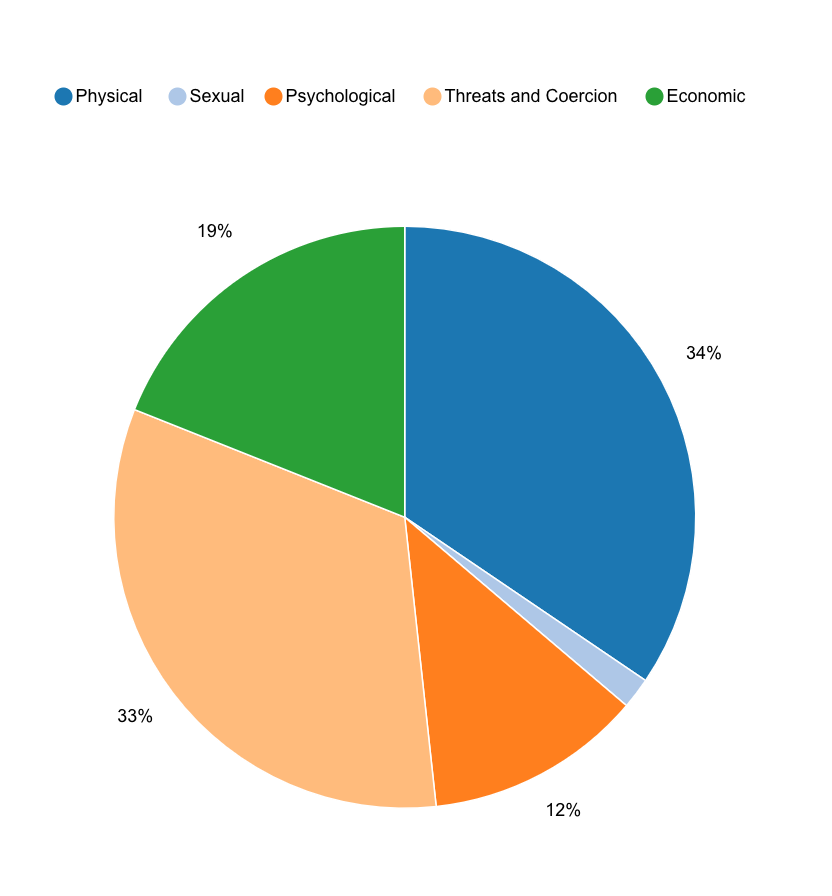
Nigeria Hotline Violence Totals
The Stop-FIDA hotline received reports of all categories of violence, primarily physical violence and threats and coercion. The reported incidents were evaluated by a response team, to determine what response was needed, and whether the incidents should be referred to another stakeholder, such as the police or a service provider for victim support.
ABOUT THE OBSERVATION
While the observers in each monitoring effort were not systematically deployed according to a statistically-developed sample, the data they collected provides a depth of information on the general trends and electoral environment.
In its national pre-election observation, TMG deployed observers from November, 2014 to February, 2015, in each of the 774 local government areas (LGAs) of Nigeria to gather information about the general environment, including early warning signs of electoral violence. For the state-level pre-election observations, TMG also deployed observers throughout Kogi and Bayelsa state. While the observers in each monitoring effort were not systematically deployed according to a statistically-developed sample, the data they collected provides a depth of information on the general trends and electoral environment. Observers in the pre-election period reported incidents of violence that they witnessed directly, as well as incidents reported to them by credible third parties such as media outlets or community members and verified via a four-step process.
For the election day observations at a national and state level, TMG systematically deployed observers and collected information on critical incidents as well as conducting successful parallel vote tabulations (PVTs), also referred to as a Quick Count. In the national election, TMG deployed over 3,000 observers, collecting more than 125,000 individual data points about election day.
Other countries
The Votes Without Violence project, initially developed by the National Democratic Institute, has examined violence against women in elections in the following countries. You can view each country's data individually or check out our cross-country analysis.
Burma
Cote D'Ivoire
Contested claims of victory during Côte d’Ivoire’s 2010 presidential election—the first in a decade—triggered widespread post-election violence, in which women were often the first victims.